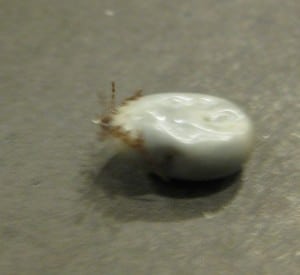Sanctuary Life
Lyme Disease in dogs cases rise
Watch out Jack – there are ticks about! One of the dogs brought in last week had a tick, it was firmly attached to the skin on his neck and almost buried in his coat. We were lucky to spot it. Dogs pick ticks up from long grass and woodland walks, a quick check after exercise needs to be part of your routine.
Cases of Lyme Disease in dogs have risen over five hundred per cent over the last six years – mild weather and global warming maybe.
Ticks start off as tiny pin head sized grey blobs and then swell up as they suck the animals blood. This is bad enough and can lead to anaemia but the real worry is Lyme’s Disease which is passed on by infected ticks.
The symptoms can be vague to begin with – arthritis, swollen joints, loss of energy and swollen lymph nodes. If not treated quickly though the symptoms can be life changing – sometimes meningitis results after a tick bite.
It’s not just dogs who suffer, people are affected by tick bites and Lymes disease too. If you think you have been bitten see your G.P. as soon as possible. There is usually a tell tale bulls-eye shaped rash in humans, this is harder to spot or doesn’t occur in dogs.
If you find a tick you can removed it easily with a Tick twister – a small gadget that gets all the tick out. If you leave the head in there will still be problems, infection and abscess. As soon as you have the tick out you need to dispose of it and this is easier said than done. Ticks are great survivors and immobilising them first is the only way to make them stay put. We put them in a pot of vaseline which stops them escaping and jumping on to someone else.
We then burn them because trying to squidge them doesn’t always work. You can hit them with a hammer and they’ll get up a few minutes after, shake their heads and look for more blood to suck!
Treating your pet with medication that kills and prevents ticks is the best way to be sure you are coping with this problem. We use Frontline which works for a month. Ask your vet for his suggestions and if walking in long grass yourself make sure to cover up and not get bitten.



